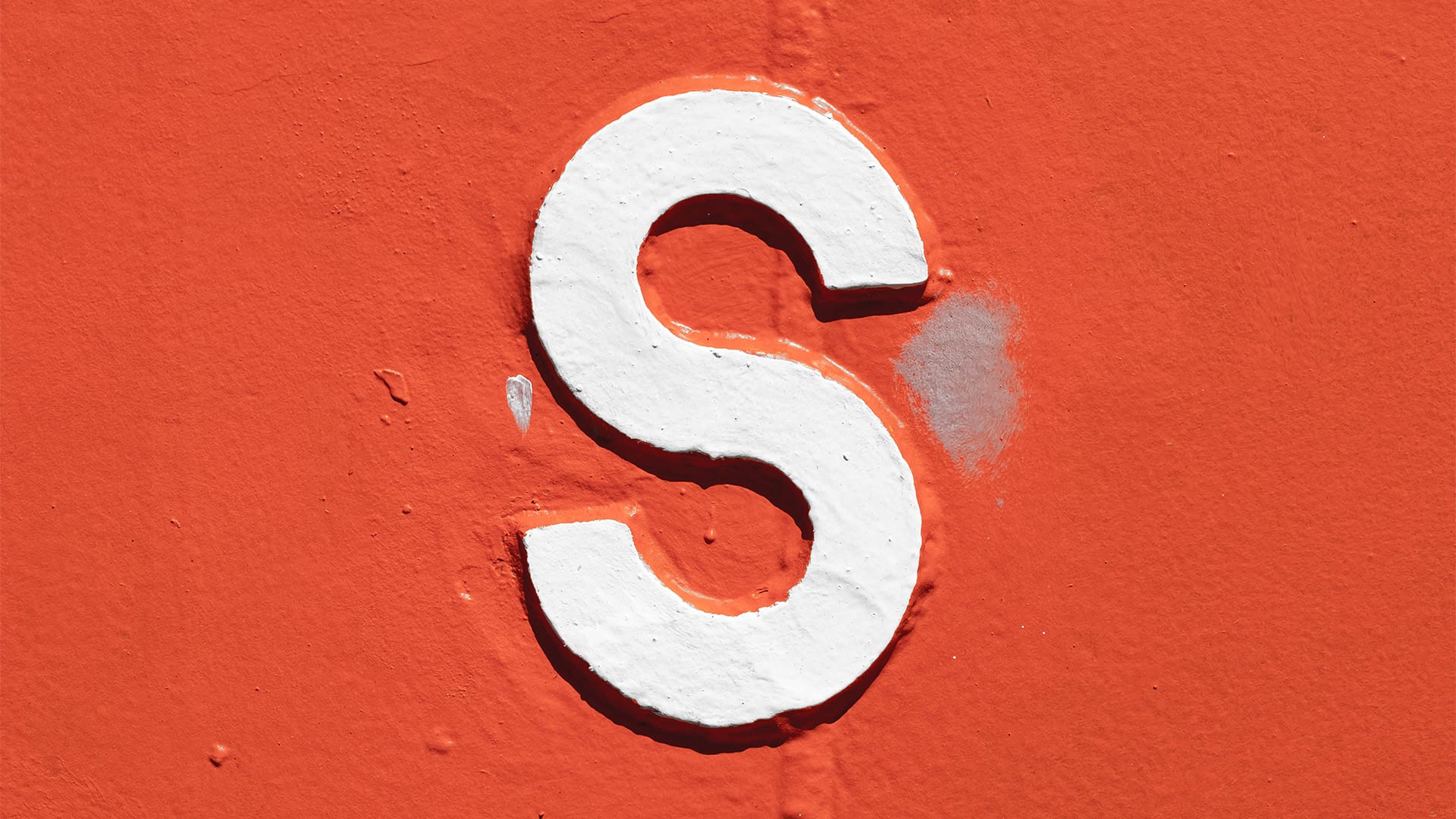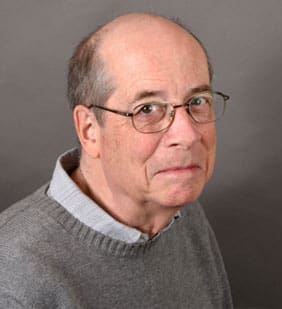S
Soon after the invasion of Iraq in 2003, General Peter J. Schoomaker, the US Army chief of staff, gave an unusual order: he promoted the letter “s.” “It’s Soldier, not soldier,” reported the American military paper Stars and Stripes. From then on, all “command information products” would capitalize the word “soldier.” According to Schoomaker’s office, the change would give “Soldiers the respect and importance they’ve always deserved, especially now in their fight against global terrorism.” A few months later, the Air Force followed suit. Its chief of staff, General John Jumper, required Air Force communications to spell “airman” with a capital “A,” because “we’ve earned the respect a proper name imparts.”
These orders reflected deep desires. Stars and Stripes hadn’t written up the story in the 1990s when Navy Secretary John Dalton began capitalizing “sailor” in official documents, but Dalton’s “decree” became a point of confirmation in online spaces where many military people intensely approved. “Sailor, Soldier, and Airman are . . . considered proper nouns in this blog,” wrote one. “[If] you’re concerned the grammar police may attempt to arrest you, tell them these words are proper ‘respect’ nouns and they need to follow the lead of the respective military service heads and update their grammar manuals.”
“Oh, man,” a contrarian groused (in now-deleted comments). “Military leaders are now in the business of setting trends in proper English? That notion is as laughable as it is absurd.” But no other commenter was amused. “Fortunately for you there are Those in the Military—Marines, Soldiers, Sailors, Airmen, Enlisted Men and Women, Guardsmen and All Who are defending your privilege to be an idiot,” replied one. “If you can’t stand behind our troops,” said another, “we would like you to stand in front of them.”
The generals must have been leading from behind: they had prescribed a longed-for treatment for a long-felt sense of injury. “Soldier,” “Sailor,” and “Airman” soon became routine in American military writing, present almost anywhere you dip in. They are not alone as favoured terms, since frequent capitalization is the norm. You can see it in a typical recruitment pitch, where the “Seven Core Army Values” define “the true meaning of a Soldier and what being a Soldier is all about.” The values are “Loyalty, Duty, Respect, Selfless Service, Honor, Integrity, and Personal Courage”—and clearly these are “respect nouns” too. Such uppercasing is often required in rules spelled out for everything from base newspapers to correspondence.
Each style can embody a world of being and feeling.
When General Schoomaker ordered “Soldier” capitalized, he also “ordered his wordsmiths to ask the editors of Webster’s dictionary and the Associated Press Stylebook to make the change as well.” But to this day Merriam-Webster and the AP have not obliged. Why not? Do they lack respect for soldiers? I doubt it. In any case I know, as a long-time editor and teacher of editing, that they felt a strong allegiance to customs of their own. While the US military follows what editors call an “up style,” most US publishers don’t. For nearly two centuries—reacting at first against the lavishly erratic uppercasing common in eighteenth-century English—they have followed the “down style.” Each style can embody a world of being and feeling.
When I say “publishers,” I’m not thinking of gatekeepers who decide what gets published, but rather of manuscript editors. One can consider them gatekeepers too, but their main job is to invite clarity in and shut confusion out. Among these editors, “style” often refers narrowly to the way surface details are treated when at least two ways are defensible. Whether or not to capitalize “soldier” is such a style choice, and such choices can be guided by rules in style manuals like the Associated Press Stylebook or the Chicago Manual of Style (the former widely followed in news writing, the latter in magazine and book publishing). “Style rules aren’t used because they’re ‘correct,’” says a practitioner. They’re created to help writers and editors “do something the same way every time for the sake of consistency, for the reader’s sake.”
As my students learn from their textbook, The Copyeditor’s Handbook, the down style “favors the sparse use of capital letters,” while in an up style “many more nouns and adjectives are uppercased.” Garner’s Modern English Usage, which my students also use, launches its entry on capitalization with this: “There are really just three rules: capitalize the first word of a sentence, the pronoun I, and proper names.” “What could be easier?” says its author, Bryan Garner. But then, he continues, “the ‘yeah-but’ bug bites. You’re writing a business letter and you notice that everyone capitalizes Company when it refers to your company, even when it’s not used with the company’s name. Isn’t that a common noun?”
A major difficulty is that “up” takes many forms. Countless organizations obey their own “house styles,” in which—to elevate the “house” and its officials—generic words like “company,” “university,” and “president” are capitalized at all times. And individual people have countless preferences and habits. Nearly everyone uppercases the first word of a sentence and the pronoun “I,” but what does “proper” mean? According to Garner, a proper noun or adjective identifies “a specific person, place, or thing,” but that definition is easy to stretch, especially when capitalization becomes what The Copyeditor’s Handbook calls “an issue of giving or denying status to a term.”
Up styles can be quite rational and self-consistent. For example, the Roman Catholic Church routinely uppercases “church” in English when referring to itself as an institution, along with other terms of special importance to it like “encyclical.” But a down-style publisher like the New York Times won’t capitalize “church” and “encyclical” in this way, and neither will I. Such choices can arouse deep feelings: one of my students almost cried in class when she learned that capital-C “Church” isn’t everyone’s rule.
Up-ness can be quite innocently neutral, if sometimes irrational, as in “several Gutter Overflow Work Orders have been submitted” (a message from a maintenance department). But other up styles are far from neutral. In the social-media performances of Donald Trump, for example, “respect nouns” like “country” and “nation” constantly rear up, and other words—to top those—must then be ALL CAPPED to guarantee that everything and everyone else will be shouted down. As Garner says, “it isn’t always inexperience that leads to overcapitalizing. Sometimes it’s propaganda.”
Overcapitalizing can draw sarcasm from down-stylers like Bill Walsh, the late Washington Post copy chief. When a writer complained that an editor had “bashed ‘the Space Shuttle’ down to ‘the space shuttle’ instead of visiting www.nasa.gov,” Walsh retorted, “Uh, right, pal—let’s take all our usage cues from the federal government.” Mostly he condemned the uppercasing practices of “corporate hucksters.” “Are you going to give in to all those demands?” he said. “Do you want your stories to look like press releases?” He hated huckstering—and he also had a practical problem, as does any editor whose work is meant for readers of all kinds. If you give in to some of the demands, you’ll seem to have taken sides in a war for financial, political, or emotional advantage. If you give in to every demand, your writing will Become Almost Unreadable.
The down style is thus partly a refuge from hard decisions, but it does take sides in a war for meaning. Capitalization in the down style isn’t meant to convey feelings about importance; instead it merely denotes specificity. A committed down-styler uppercases “White House” only because the White House is a particular building with that agreed-on name, and by extension a particular American presidency. But the white house on the corner is just a white house, even if you grew up there. If you want to express your love for it, propping it up with capital letters won’t help but honest writing may. In the down style, there’s no Thumb on the scale. Less permits more.
The down style is partly a refuge from hard decisions, but it does take sides in a war for meaning.
The down style also embodies an even-handedness with moral implications, as the up-style story of “Soldier” reveals. After the order to capitalize “soldier” went out, detailed rules came next. Where there must be uppercasing, there must also be lowercasing—“U.S. Soldiers” versus “Canadian soldiers” and “U.S. Army” versus “British army,” for example. The sentence below, invented but all too possible in a recent reality, follows prevailing US Defense Department style.
When I show students this thought experiment, they quickly spot the problem. Shouldn’t eight human beings who died at the same time in the same cause be described in the same way? Doesn’t overtly respecting some imply lack of respect for the others? Shouldn’t “soldiers”—an ordinary, generic word—be lowercased both times instead?
Yet the down style doesn’t hesitate to capitalize nouns and adjectives when they represent specific places and groups, as do “American,” “Afghan,” and “Taliban.” Most terms like those are stable, but others can be replaced over time—unsurprisingly, considering their troubled roles in the real world. “My grandfather was colored, my father was a Negro, and I am black,” wrote a young Henry Louis Gates Jr. in 1969. He didn’t capitalize “black,” though in the context of the Black Power movement his choice couldn’t have been simple. Twenty years later, with major backing from Jesse Jackson, “African-American” took hold, its already-proper capitalization suggesting a higher status but also narrowing its scope of reference. Where such terms compete, style authorities normally seek “to determine and use the term preferred by the person or group being described,” as the New York Times puts it. “African-American” prevailed in publishing, while the lowercased “black” remained parallel with the lowercased “white.”
But after George Floyd’s murder during the anguished summer of 2020, one meaning of “black,” in which race and ethnicity replace geography and nationality, grew more concentrated in many minds. Numerous publishers changed their practices again. The AP began to “capitalize Black in a racial, ethnic or cultural sense, conveying an essential and shared sense of history, identity, and community,” while the Chicago Manual declared that, “partly in light of old arguments, partly in light of new, and very much in light of recent and ongoing events and the evidence of a real shift in usage across many sources,” it would now “write Black with a capital B when it refers to racial and ethnic identity.” Soon after, a copyeditors’ society put changing “Black” to “black” first in a list of condemnable “microaggressions in editing.”
Would I as an editor capitalize “black” now when it refers to racial and ethnic identity? As a rule, yes, given its new ubiquity and distinctness of meaning—though also with an awareness that the desired effect will wear off and a new orthodoxy is likely to come along. (I’d also honour the customs of publications like Comment, which has chosen to keep on lowercasing “black.”) Would I capitalize “white” when referring to white people? No, unless it’s next to similar terms that are normally uppercased. Capitalizing “white” in other situations would enlist the word simultaneously in two hardening ideologies that almost mirror each other. One disparages human traits it associates with “Whiteness,” while the other deploys “White” as a “respect adjective.”
A second upheaval in the realm of style filled pages in December 2020. It began with a macroaggression—a flagrantly disrespectful op-ed by Joseph Epstein in the Wall Street Journal called “Is There a Doctor in the White House? Not if You Need an M.D.” Epstein’s ostensible target was the “Dr.” often preceding the name of Jill Biden (at www.whitehouse.gov, for example), but the disrespect included Biden herself. “Madame First Lady—Mrs. Biden—Jill—kiddo,” wrote Epstein, “any chance you might drop the ‘Dr.’ before your name? ‘Dr. Jill Biden’ sounds and feels fraudulent, not to say a touch comic.” Epstein disparaged Biden’s EdD—earned “through a dissertation with the unpromising title ‘Student Retention at the Community College Level: Meeting Students’ Needs’”—and went on to complain about declining standards for doctorates in general, except those in the sciences and medicine.
As the Washington Post reported, “the piece swiftly went viral,” drawing fire from “dozens of Biden supporters, academics, and activists.” A spokesman for Biden spoke for almost everyone else too. “The @WSJ should be embarrassed,” he tweeted. “If you had any respect for women at all you would remove this repugnant display of chauvinism from your paper and apologize to her.” An anthropologist with a Cambridge PhD argued that “if you have a doctorate in pharmacy or education or biology, it doesn’t matter: Call yourself a doctor. You worked your rear end off for years to earn that.” Like many others, she condemned Epstein’s message as “emblematic of the way many men question or disparage women’s credentials.” Another commenter pointed out that “racial minorities sometimes insist upon ‘Dr.’ for a similar reason. You are more likely to want to be addressed as befits a professor if people have assumed you are a janitor or a common thief, just because of the color of your skin.”
In USA Today, a column by Steven Petrow spelled out a consensus. “Many news organizations,” he said, “reserve the title ‘Dr.’ for medical doctors because that’s Associated Press style. But the rest of us aren’t bound by AP style. Jill Biden is usually addressed in public with the ‘Dr.’ honorific, and other documents generally include it before her name. She has earned it. We should use it. We should respect her.” Biden must want “her own identity separate from her husband,” he said. “We should respect that. And maybe if we start calling people as they wish, we’d be one step closer to bridging the divides everywhere in our midst.”
This consensus had an immediate effect—for example, in a Vogue cover story about Biden liberally spiced with “Dr. Bidens” and in a sharp uptick of “Drs” appearing before other names in the New York Times. The immediate effect is now a thriving trend.
Petrow’s message was summed up by a subhead: “It’s simple: Call people by the title they prefer.” But it isn’t simple. I can call you by the title you prefer, but our existence among other people brings on complications. Some of them help to explain the AP’s “Dr.” style and its influence.
If you’re a writer or a publisher, and you want a discerning audience to believe what you say, you have to get your facts right. The Chicago Manual, for example, favours avoiding “Dr.” for non-physicians as “a practical solution to the difficulties of checking the . . . academic degrees of every scholar mentioned in a book or article” (difficulties shared by the AP). And to keep readers engaged you must be succinct without vagueness. If you limit “Dr.” to medical experts, your “Dr.” is likely to indicate medical expertise, since “Dr.” is usually both a title and a job description. But if you use “Dr.” as shorthand for expertise of many kinds, it will indicate little more than status. That’s why, when the kind of expertise needs clarifying, the AP Stylebook wants informative phrases like “Fatima Kader, who has a doctorate in psychology.” AP style for titles is like AP style for capitalization: clarity and specificity rule, not questions of importance or respect.
It’s also true that sticking to a narrow policy helps publishers fend off a wide spectrum of demands. General Schoomaker didn’t sway the AP when he wanted “soldier” capitalized. Neither did the American Psychological Association when it asked the Stylebook editor twice within a year to use “Dr.” for PhD-level psychologists. The association also urged its members to ask interviewers to identify them with “Dr.,” thus creating “bottom-up and top-down pressure on AP to change its honorifics style rules.” Perhaps the members were soothed by Fatima Kader’s doctorate in psychology.
Such pressures can work. AP style still rules out “Dr.” for natural-science PhDs, but scientists routinely call themselves doctors and others constantly echo them. The echoes have pervaded popular culture for decades: remember Dr. Brown in Back to the Future and Dr. Zarkov in Flash Gordon. As for medical doctors, some inhabit the right side of the tracks with so much assurance that they introduce themselves with “My name is Dr. So-and-So,” as if their parents had thus entitled them at birth.
And title desires can be worse than a complication. Parading “Dr.” is a kind of up style. No style manual gives it that name, but that’s what it is. And it’s just as inseparable as capitalization style from giving or denying status. As with “Soldiers” versus “soldiers,” where there are ups there must also be downs.
Here’s an illustration from my own experience. For a dinner honouring notable alumni of my university, the development people needed an invitation. The manuscript for it named five honourees, who—since fundraisers strive to please potential funders—were almost certainly called what they prefer. In four cases, doctoral degrees were listed, but in the fifth only a name appeared. Unlike the others it was a name I knew: it belonged to an indefatigable community organizer who had also been a state legislator and the first black person to run for mayor in my large city. Why should this hero be treated with less apparent respect than others in the same situation? The answer was not—is not—to call everyone or anyone a doctor regardless of the facts. Instead the development people agreed to delete those four degrees.
It’s time for me to say outright that my interests here are both professional and personal. Up styles really get under my skin. I don’t like the way they inflate some ideas and people while demoting others—it seems deeply wrong. In particular I don’t like the way displayed credentials can function as fortifications and even preemptive strikes. I don’t like being expected to call anyone “doctor,” and I don’t want to be called “doctor” myself, even though I have a PhD and I’m proud of what I did to earn it. Years before I learned the differences between up style and down style, these dislikes took root in me at home, school, and work.
So I felt a painful irony when, in the wake of Epstein’s op-ed, I found “Please Call Me Doctor” in Scientific American. This was the plea of a woman with an epidemiology PhD who pointed out that being called “doctor” can matter a lot to women like her, who often “face extra obstacles to success that most men don’t have to contend with.” For me this was no surprise, in view of my mother’s years as the sole woman employed by an architectural office. That is, the sole woman not employed as a secretary—she herself was a designer. She could remember, for example, the time when she laid out a detailed proposal for a male client who then smiled, thanked her, turned to a man who had come with her, and asked him when the presentation would begin.
Up styles really get under my skin. I don’t like the way they inflate some ideas and people while demoting others—it seems deeply wrong.
The irony came when the author of “Please Call Me Doctor” went on to say that using women scientists’ titles “isn’t just a feminist issue. It’s an issue of recognizing achievement and knowledge.” She very naturally wanted more respect for her own kinds of achievement and knowledge, but she said nothing to acknowledge other kinds. What about them? Should we formally respect medical doctors and scientists, or everyone with any doctorate, but not other experts whose work can be just as demanding? Who gets to be up, and who must therefore be down?
I grew up among painters, sculptors, weavers, and architects, none of them eligible for doctorhood. In fact, both my parents were visual artists, but they avoided the word “artist”—like “Dr.,” a flattering but limiting identifier—because they didn’t want to invite reductive assumptions about who they were and what they did. After graduate school I worked for a poetry organization in the company of serious writers. And from childhood I loved music and went to whatever concerts I could. All these were title-free zones, better aerated than academia and no less rich in knowledge and achievement. Some people I encountered hid titles they could have used. I heard one poet recite Milton’s “Lycidas” from memory. He had a PhD, I learned, but he never mentioned it—was he going to put himself above Milton? Was the pianist whose Beethoven made me cry going to put herself above Beethoven?
At the two universities I attended years ago, PhDs were routine but “Dr.” was minimized. Although one reason may have been “reverse snobbism” (Wikipedia’s term) fuelled then by a “rising number of ‘discount doctorates,’” nothing made me aware of such concerns. My most eminent professor had a PhD, but his students—who revered him—always called him “Mr. Warren,” with a plain formality that could still express what they felt. He once said that he “would rather be a ‘minor writer,’ perfect in my own small way, than a major professor at a major university.” This was both an idea of relative importance and an argument for modesty.
Promoting up-ness will only escalate wars much likelier to bring about the appearance of respect than its reality, and to create enclosures where openings might permit recognition and trust.
But again, no style choice is simple. Sometimes imperatives conflict. My students call every instructor “professor,” and I’d never correct them even though that’s a title I haven’t earned. At least “professor” is a job description, and it’s applied to everyone who is doing a professor’s main job. Another example: Not long ago I managed to curb resentment—and an urge to be called “Dr. Mitchell”—when my new medical doctor asked me whether I wanted to be called “Jeff” or “Jeffrey.” I don’t think it’s healthy for MDs to be Drs and patients to be either Jeffs or Jeffreys, as if the patients were children or servants. But I was an old white man and the doctor was a young Asian woman who had surely experienced an extra need for the citadel of title.
The same need influenced a Zoom discussion my university ran recently, with a panel of faculty members and students who were all members of long-marginalized groups. Few of my colleagues used to fuss over titles, but lately titles have occupied much more of the stage, and they did so on this occasion: everyone with a doctorate was carefully called “Dr.” while everyone else was carefully “Ms.” or “Mr.” The panelists meant to convey a needed respect, but they also reinforced a questionable hierarchy.
As you can guess, I don’t believe that “if we start calling people as they wish, we’d be one step closer to bridging the divides everywhere in our midst.” Steven Petrow’s heart is in the right place, but I can’t see how those divides can be bridged by up styles of any kind. Promoting up-ness will only escalate wars much likelier to bring about the appearance of respect than its reality, and to create enclosures where openings might permit recognition and trust. We’d be better off if we could back down a little.
My own hope is for quieter but clearer public language, spoken and written. For disclosing credentials only when they bear directly on the work at hand. For an eagerness to give respect, especially informed respect—but a great reluctance to extract respect from others, since force creates resentment instead. For respecting others most for what they do, though never failing to respect who they are. For remembering that, despite every difference, we have reasons to walk humbly, love both justice and mercy, and nourish each other as equals. Those reasons go deeper than politics. All of us came naked into the world, and time and chance will happen to us all.







